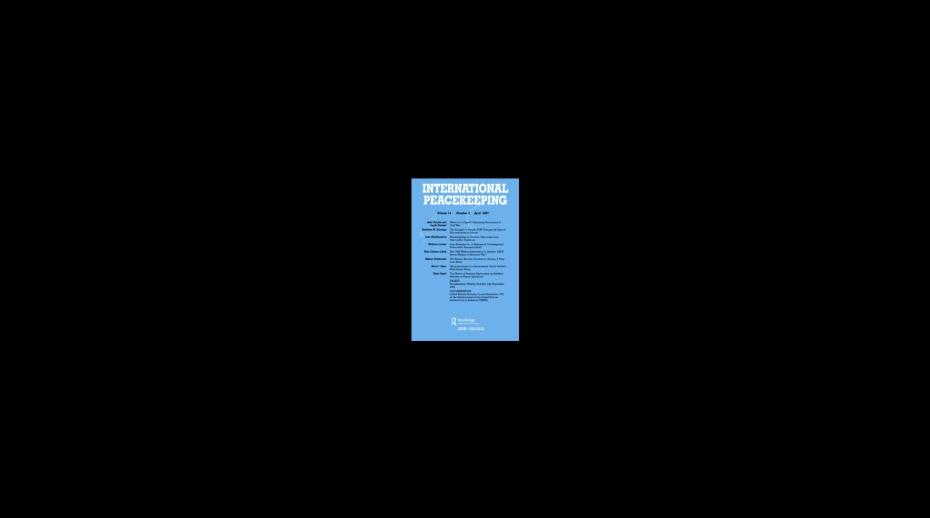
Dr Jaïr van der Lijn, Senior Researcher with SIPRI's Armed Conflict and Conflict Management Programme, has co-edited a special issue of the journal International Peacekeeping, together with Gearoid Millar and Willemijn Verkoren.
The theme of the issue, which features eight original articles, is 'Frictions in Peacebuilding
Interventions: The Unpredictability of Local–Global Interaction'.
The editors write:
What happens when global meets local? This special issue focuses on
the dynamic interaction between externally conceived plans for peacebuilding
intervention and local people's own approaches and strategies. The notion of
‘friction’ provides a perspective that acknowledges the unpredictable and
unexpected nature of this interaction. The ‘hybrid’ outcomes of such dynamic
interactions can vary in extent and success, as peacebuilding plans are
rerouted and redesigned in practice. This special issue explores how, why, and
to what effect internationally designed, funded, or administered peace projects
interact with and/or are appropriated by local actors.
the dynamic interaction between externally conceived plans for peacebuilding
intervention and local people's own approaches and strategies. The notion of
‘friction’ provides a perspective that acknowledges the unpredictable and
unexpected nature of this interaction. The ‘hybrid’ outcomes of such dynamic
interactions can vary in extent and success, as peacebuilding plans are
rerouted and redesigned in practice. This special issue explores how, why, and
to what effect internationally designed, funded, or administered peace projects
interact with and/or are appropriated by local actors.
Dr van der Lijn also wrote an article for the issue, 'Imagi-Nation Building in Illusionstan:
Afghanistan, Where Dilemmas Become Dogmas, and Models are Perceived to be
Reality'. According to the abstract:
A variety of international actors, such as the UN and NATO,
intervene in complex environments, such as Afghanistan. In order to overcome
complexity and for ‘us’ to deal with ‘them’, constructs such as ‘the
insurgents’ and ‘the government’ are used to help ‘our’ understanding and to
simplify the picture. Subsequently, these constructs become subject to nation
building and counterinsurgency theories applied by the ‘international
community’. Many of these are suboptimal because their subjects were constructs
in the first place. The result is a shadow boxing match, in which international
policies dissolve in local realities. On the basis of social psychology
theories, this paper develops the hypothesis that in complex peacebuilding
environments decision-makers structure and simplify disorder, which leads to
suboptimal interventions, to which local actors respond in a process of
friction. This hypothesis is tested on the case of Afghanistan.
intervene in complex environments, such as Afghanistan. In order to overcome
complexity and for ‘us’ to deal with ‘them’, constructs such as ‘the
insurgents’ and ‘the government’ are used to help ‘our’ understanding and to
simplify the picture. Subsequently, these constructs become subject to nation
building and counterinsurgency theories applied by the ‘international
community’. Many of these are suboptimal because their subjects were constructs
in the first place. The result is a shadow boxing match, in which international
policies dissolve in local realities. On the basis of social psychology
theories, this paper develops the hypothesis that in complex peacebuilding
environments decision-makers structure and simplify disorder, which leads to
suboptimal interventions, to which local actors respond in a process of
friction. This hypothesis is tested on the case of Afghanistan.